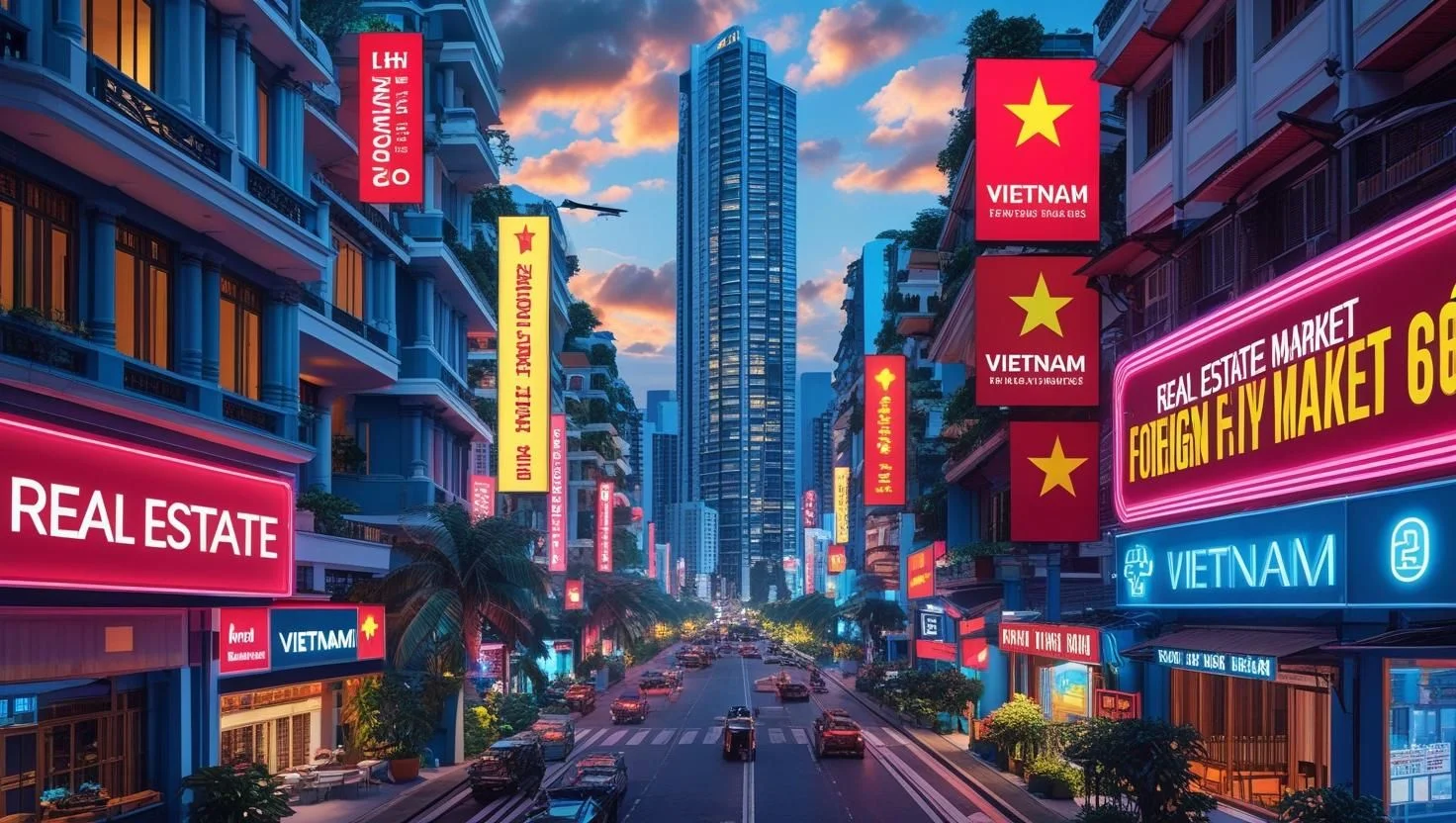Vietnam Real Estate 2025: Foreign Ownership Rules, Best Cities & Market Strategy
120
9/16/2025

✅ Can Foreigners Buy Property in Vietnam?
Yes—but with specific quota and legal limitations.
Foreign individuals and organizations can legally buy condominiums, houses, and villas—but not land, and only within set foreign ownership caps per building or project.
⚖️ Vietnam’s Foreign Ownership Laws (2025)
-
✅ Condominiums: Foreigners can own up to 30% of the units in any residential condo building.
-
✅ Landed houses or villas in residential projects: Foreigners may buy up to 10% of units in a villa development.
-
❌ Land ownership is not permitted—all land in Vietnam is owned by the state. Buyers own the building only, on a 50-year lease (extendable).
-
✅ Foreigners can buy, sell, lease, and inherit property under their name.
📌 You must hold a valid passport and can only purchase from licensed commercial projects, not private individual sales.
🏙️ Top Cities to Invest in Vietnam in 2025
1. Ho Chi Minh City (Saigon)
-
Economic hub with rapid urban expansion
-
High-end condos, co-working hubs, and STRs
-
District 2 (Thu Duc), District 7, and Phu Nhuan are investor favorites
2. Hanoi
-
Political capital with strong demand for family apartments
-
High local buyer competition = resale value stability
-
Tay Ho (West Lake) is a hotspot for foreigners
3. Da Nang
-
Coastal resort city with high tourism appeal
-
Condos near beaches yield strong short-term returns
-
Suitable for retirees, second-home buyers, digital nomads
4. Nha Trang
-
Resort-style developments popular with Russians and Chinese
-
Good for branded residences and serviced apartments
5. Phu Quoc Island
-
Vietnam’s rising tourism jewel
-
Legal special economic zone with more flexible land and investment rules
💰 Average Property Prices (2025)
| City | Avg. Price (VND/sqm) | Approx. €/sqm |
|---|---|---|
| HCMC | 75–120 million VND | €2,700–€4,400 |
| Hanoi | 55–100 million VND | €2,000–€3,700 |
| Da Nang | 40–70 million VND | €1,500–€2,600 |
| Nha Trang | 35–60 million VND | €1,300–€2,200 |
| Phu Quoc | 45–85 million VND | €1,650–€3,100 |
📈 Rental Yields & ROI (2025)
| Location | Long-Term Rental Yield | Short-Term ROI (Airbnb, STRs) |
|---|---|---|
| Ho Chi Minh | 5.5–7% | 8–10% |
| Hanoi | 4.5–6% | 6–8% |
| Da Nang | 6–7.5% | 9–11% |
| Nha Trang | 5.5–7% | 8–10% |
| Phu Quoc | 6–8% | 9–12% |
⚠️ Note: Foreigners renting out property must register rental contracts and may be subject to licensing and tax compliance.
📄 Property Buying Process for Foreigners
-
Select a unit in a licensed project with foreign quota availability
-
Sign a Reservation Agreement and pay deposit (~10%)
-
Sign Sales & Purchase Agreement (SPA) after legal review
-
Transfer payment (often through an authorized bank)
-
Receive ownership certificate (pink book or long-term leasehold document)
🧾 Taxes & Fees
| Type | Rate |
|---|---|
| VAT | 10% (included in new build prices) |
| Registration Fee | 0.5% |
| Personal Income Tax (Sale) | 2% of sale price |
| Rental Income Tax | ~10% (composite rate) |
| Capital Gains Tax | Not directly applicable; taxed as income |
💡 Most taxes are deducted at the time of transfer or collected annually based on rental earnings.
🛂 Does Buying Property Get You Residency in Vietnam?
❌ No. There is no property-based residency or citizenship program in Vietnam.
-
Foreign buyers can stay short-term via tourist visas or business visas
-
Long-term visas are only granted through employment, investment in a business, or spousal sponsorship
-
No Golden Visa or citizenship by investment exists at this time
👤 Who Is Vietnam Real Estate Suitable For?
✅ Best suited for:
-
Mid-range and luxury investors targeting high-yield rentals
-
Foreigners wanting low-entry costs in a fast-growing market
-
Digital nomads or expats buying a second home
-
Investors focused on coastal condos and resort developments
❌ Not ideal for:
-
Buyers wanting freehold land
-
Investors needing permanent visas or citizenship perks
-
High-end institutional investors needing liquidity or large asset protection
🔮 Trends for Vietnam in 2025
-
Rise of branded residences and managed STR complexes
-
Smart city and infrastructure-linked projects (new metro lines in HCMC and Hanoi)
-
More developers offering foreigner-friendly financing options
-
Push for green-certified buildings in tourism zones
-
Regulatory tightening to reduce foreign land ownership abuse via locals
🧭 Final Thoughts
Vietnam's property market in 2025 is one of Southeast Asia’s fastest-growing but still carries legal and structural complexity. Foreigners can buy condos and houses within limits—but must avoid land ownership schemes and work with qualified lawyers and agents.
For those seeking rental returns, lifestyle value, and early entry into a developing economy, Vietnam offers a compelling mix of opportunity and accessibility—with relatively low capital requirements.
Approach with legal clarity, local partners, and a long-term view—and Vietnam can deliver high growth at a low cost.
Are there any questions or do you need advice?
Leave a request
Our expert will contact you to discuss tasks, choose solutions and be in touch at each stage of the transaction.

